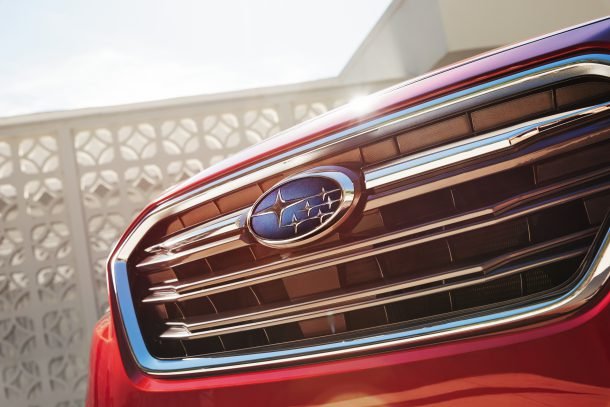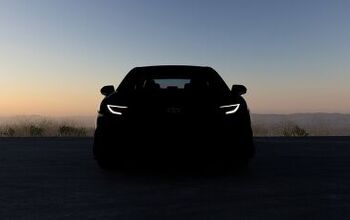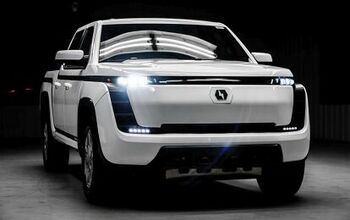J.D. Power Says Drivers Still Loyal to Subaru, Lexus

J.D. Power’s Automotive Brand Loyalty Study dropped this week, with Subaru and Lexus predictably topping the charts. Subaru actually edged out Toyota by a hair in the mainstream segment by retaining 60.5 percent of its owners, and is assumed to be aided by younger generations just getting into vehicle ownership. This is something we can back up anecdotally, as many drivers look back fondly at the nameplate and are eager for a second helping.
If your author had a nickel for every person that happily reminisced about the hand-me-down Subaru Legacy or Forester wagons they drove during their formative years, he would have a jar full of coins wasting space on a shelf somewhere because nickels aren’t particularly valuable.
Speaking of not having enough money to buy things, Lexus trumped Mercedes-Benz in the premium/luxury segment with a loyalty percentage of 48. It was a close race, though. Mercedes retained 47.8 percent of its customers and was followed by BMW (45.1 percent), Porsche (44.9) Audi (43.4), Land Rover (39.6), Acura (38.3), Volvo (38.3), and Lincoln (37).
The bottom of the field included Cadillac, Maserati, Infiniti, and Jaguar — with only the British brand failing to achieve a retention rate above 21 percent.
Back in the mainstream, Toyota came in a very tight second with a customer loyalty settling in at 60.3 percent. Rounding out the top five (before the differences between brands really starts to become apparent) were Honda (58.7 percent), Ram (57.3) and Ford (54.3).
Mid-pack contenders averaged a retention rate between 51 and 39 percent, leaving a handful of brands looking like they must have done something terribly wrong to have lost so much repeat business. They included Buick with 27.4 percent, Mitsubishi (27.1), Mini (26.4), Dodge (17.8), Chrysler (14.1), and Fiat (10.4).
While most of the names are hardly surprising to see, Dodge has recently been praised for its improving quality. In fact, it tied with Kia for first place in J.D. Power’s most recent Initial Quality Study. Dodge also aced Consumer Reports’ reliability survey — making it the first domestic brand in the publication’s history to take top honors. At the same time, Subaru’s reliability seemed to slip immensely.
What gives?
We think this has everything to do with product lineup and the average consumer not being hip to the daily goings-on of the automotive industry. Dodge has some of the best marketing in the business and the kind of products Americans traditionally appreciate. But it’s becoming even more of a specialized performance brand, with the Journey and Grand Caravan being discontinued for 2021. Meanwhile, Chrysler has one luxury sedan and three(ish) versions of the same minivan on offer. They’re wonderful products, but there’s not a lot of variety, likely encouraging some shoppers to look elsewhere.
By contrast, Subaru has a more versatile lineup that caters to more mainstream tastes and boasts similarly good marketing. Framing itself as the pet-friendly automaker (as if animals cared one whit about what you’re driving) was a true stroke of brilliance. It understands it’s a brand that excels at making customers walk away with a good feeling and has leaned into that by focusing on its safety credentials and attaching itself to nature by way of (nearly) ubiquitous all-wheel drive.
“There are many factors that contribute to brand loyalty, ranging from the experience a customer has when purchasing the vehicle to how driving it makes them feel,” Tyson Jominy, vice president of data & analytics at J.D. Power, said in a statement.
“Automakers are really focused on customer retention, as evidenced by the payment plans and incentives they’ve offered since the COVID-19 pandemic broke out. Many have gone above and beyond to offer customers financial assistance during a period of economic uncertainty, which does a lot to bolster consumer confidence in their chosen brand and repurchase it in the future.”
[Image: Subaru]

A staunch consumer advocate tracking industry trends and regulation. Before joining TTAC, Matt spent a decade working for marketing and research firms based in NYC. Clients included several of the world’s largest automakers, global tire brands, and aftermarket part suppliers. Dissatisfied with the corporate world and resentful of having to wear suits everyday, he pivoted to writing about cars. Since then, that man has become an ardent supporter of the right-to-repair movement, been interviewed on the auto industry by national radio broadcasts, driven more rental cars than anyone ever should, participated in amateur rallying events, and received the requisite minimum training as sanctioned by the SCCA. Handy with a wrench, Matt grew up surrounded by Detroit auto workers and managed to get a pizza delivery job before he was legally eligible. He later found himself driving box trucks through Manhattan, guaranteeing future sympathy for actual truckers. He continues to conduct research pertaining to the automotive sector as an independent contractor and has since moved back to his native Michigan, closer to where the cars are born. A contrarian, Matt claims to prefer understeer — stating that front and all-wheel drive vehicles cater best to his driving style.
More by Matt Posky
Latest Car Reviews
Read moreLatest Product Reviews
Read moreRecent Comments
- SCE to AUX Sure, give them everything they want, and more. Let them decide how long they keep their jobs and their plant, until both go away.
- SCE to AUX Range only matters if you need more of it - just like towing capacity in trucks.I have a short-range EV and still manage to put 1000 miles/month on it, because the car is perfectly suited to my use case.There is no such thing as one-size-fits all with vehicles.
- Doug brockman There will be many many people living in apartments without dedicated charging facilities in future who will need personal vehicles to get to work and school and for whom mass transit will be an annoying inconvenience
- Jeff Self driving cars are not ready for prime time.
- Lichtronamo Watch as the non-us based automakers shift more production to Mexico in the future.


































Comments
Join the conversation
Hm... Let's see what I owned so far since I know how to drive. 1994 Isuzu Panther MPV. MT 1993 Honda Accord Sedan MT 1992 Honda Accord coupe AT 1990 Honda Accord Sedan MT 1991 Honda Accord Sedan AT 1993 Honda Prelude MT 1994 Acura Legend AT 1997 Volvo 850 GLT Wagon AT 1990 Toyota Previa AT 2004 Honda Element AT 2006 Scion xB AT 2005 Prius AT 1996 RAV4 MT 2012 Honda CR-Z AT 2010 Suzuki SX4 AT The worst car I owned was Volvo and that I still own SX4 was lemon. But as I noticed the list mostly I am happy with my old and new Honda and Toyota. I never bought them new and the lowest mileage that I own were 100k and the most were 380k. Yep bought and sold them amazing with all those miles I still can sell them after I used them several years.
If Chevy hadn't screwed me, that's what I would still be buying. I've had four Mazdas since, and I'm likely going to buy number five when my lease runs out, unless a small affordable pickup shows up before then. Treat me right and I'll be loyal.